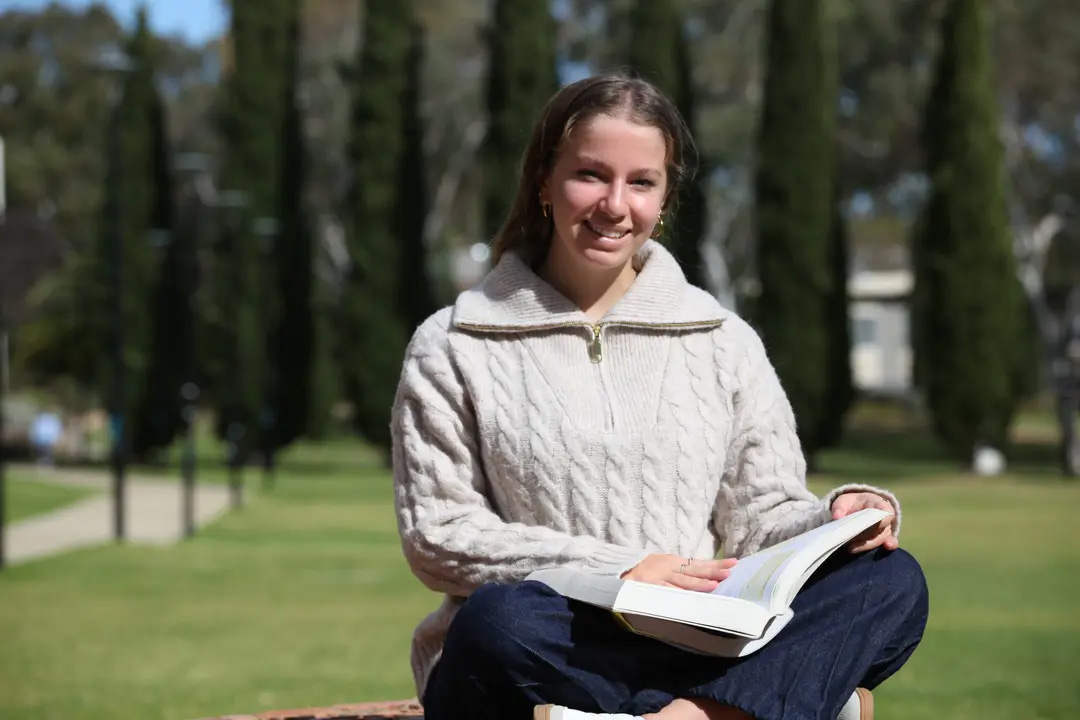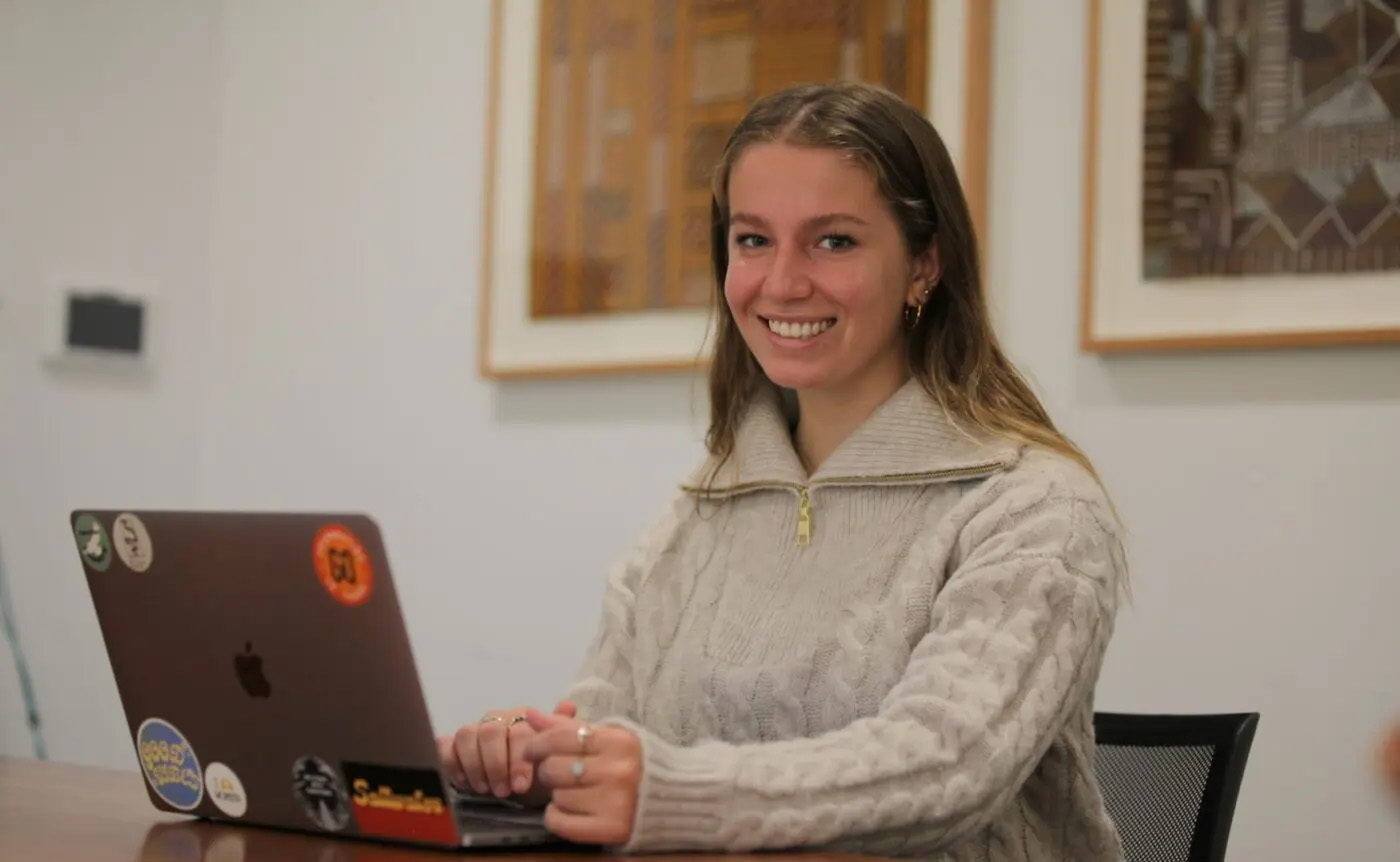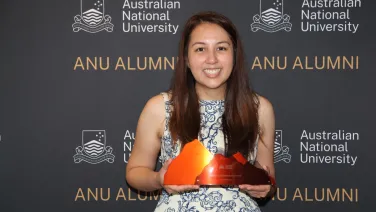How Mikayla Helms is keeping the language and legacy of her grandmother alive
By Elaine Obran

Learning your grandmother’s mother tongue takes on a deeper meaning when she just so happens to be the last person on earth who can fluently speak it.
This is the experience of Mikayla Helms, an Australian National University (ANU) student who began preserving her grandmother’s language when she was still in Year 12.
As part of a school assignment, Helms created a dictionary. She meticulously began transcribing words shared with her by her grandmother, Beryl Carmichael, a traditional custodian of healing rain and Dreaming stories of the Ngiyaampaa peoples.
Just two weeks after the assignment was complete, Carmichael suffered a stroke that left her unable to speak.
“That assignment meant everything to me,” says Helms.
“I have a website where I uploaded an interview with her. I got to talk with her and write down everything she knew about the language.”
Helms is one of many First Nations Australians who are carrying the responsibility of safeguarding traditional languages for future generations.
It’s a role that can feel overwhelming – progress is often slow and the barriers to meaningful change are immense.
“At times it can be frustrating and disheartening, because you don’t feel like you’re having as big of an impact as you’d like to,” she reflects.
“My Nana was truly the most wonderful person. She was a life member of the NSW Aboriginal Education Consultative Group (AECG), ran Cultural Camps called Ngallia Norta Norta Killara (All Learning Together), gave talks at schools across New South Wales about stopping racism, and helped ensure Aboriginal children could go to school feeling safe and happy.”
Despite her grandmother’s larger-than-life legacy, Helms has found her own path – studying Health and Medicine at ANU with the goal of giving back to First Nations communities. It’s an achievement she says wouldn’t have been possible without the support of the ANU Tjabal Centre and the Kambri scholarship program.
Launched in 2019, the ANU Kambri Scholars Program provides financial, academic and pastoral support for 15 First Nations students to commence their studies at ANU every year.
“That scholarship is the reason I’m here; without it there’s no way that I would have been able to attend university without the financial support,” she says.
“Having that takes a lot of stress off me and allows me to focus more on my studies, make friends, and go about my business without constantly having to worry about how I’m going to afford everything.”

With that foundation, Helms has already taken her passion for change beyond Australia –volunteering at a school in the Philippines.
Wearing Indigenous shirts with pride, she was able to share her grandmother’s language with the students, while learning Tagalog in return.
“All the children were all so excited. They’d also teach me their language, and I’d teach them mine. It was just an experience that I can’t even describe,” Helms says.
But for Helms, this is just the beginning.
After graduating from ANU, she hopes to become a paediatrician and specialise in First Nations health.
“I want to travel across Australia, work in rural communities and give back. Because when you give, students can access the education they deserve.
“My Nana did that, too. She helped kids get to school, ran camps, and shared our culture and our Dreaming.”
And in doing so, like the language she preserved in high school, Helms feels that she is carrying on a legacy – using the syntax of her ancestors, but in her own voice.
“I’ve been trying to build a reputation so I can speak out on these issues, so people will take them seriously – and take us seriously.”
This article was first published by ANU Reporter.



